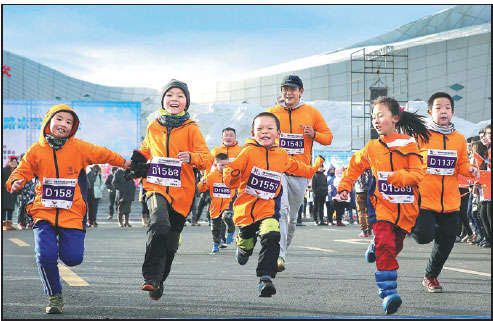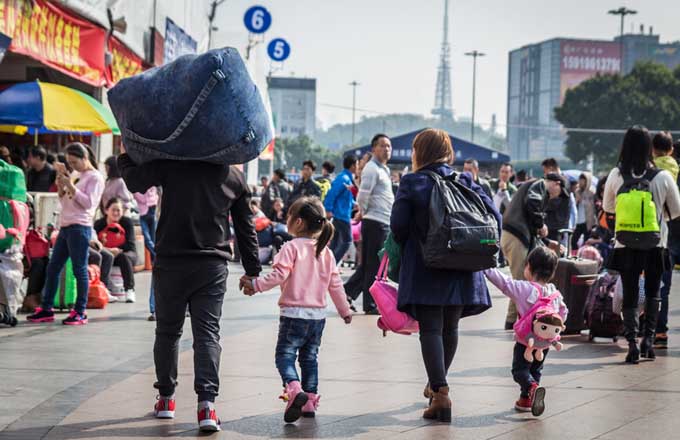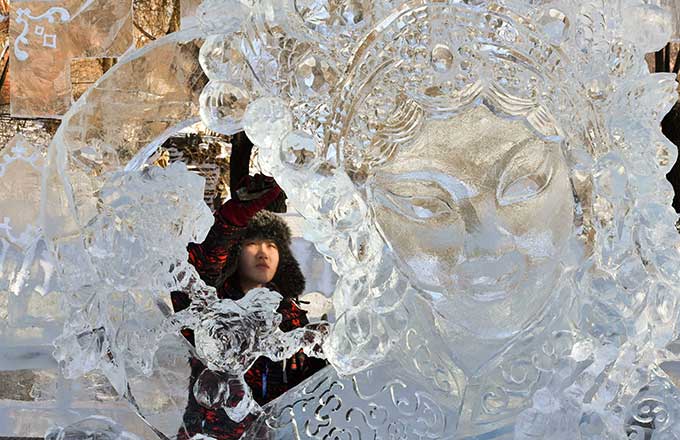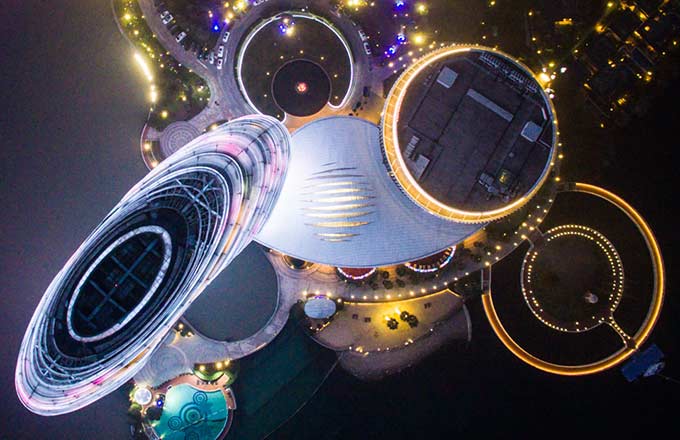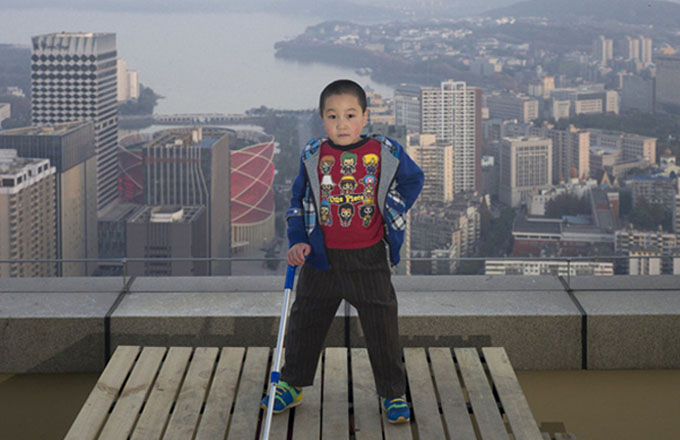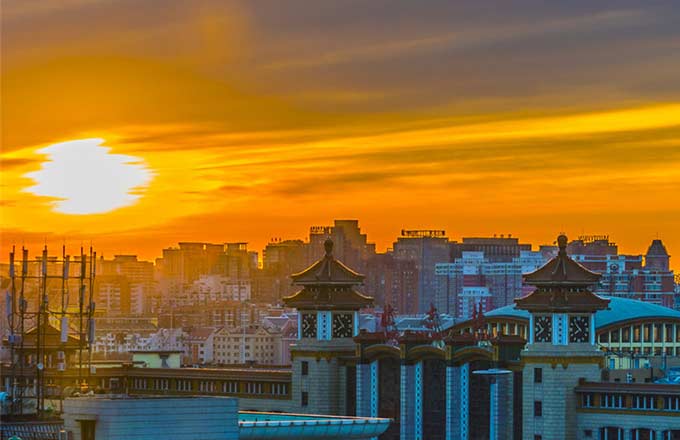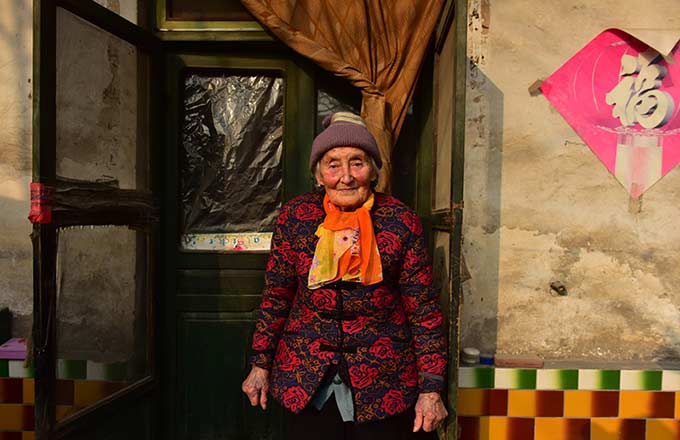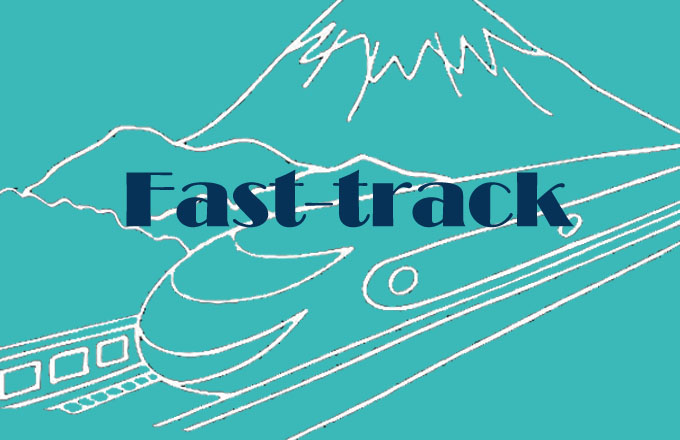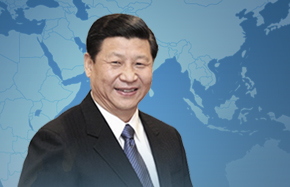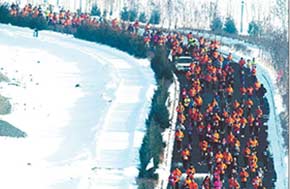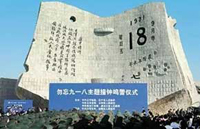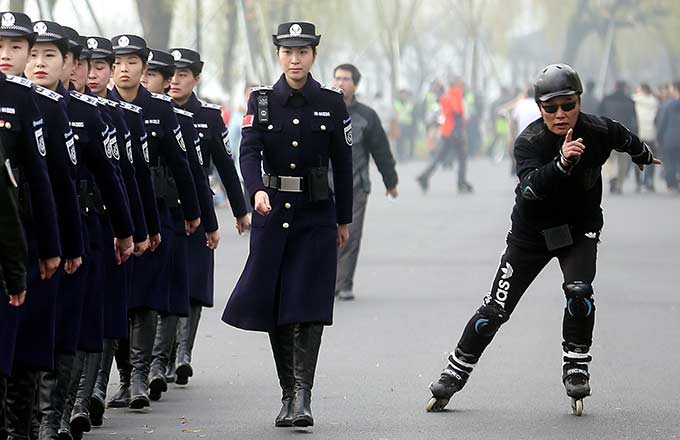Race founder has grand ambitions
|
Children take part in a parent-child race at the 2017 Urumqi Silk Road Ice and Snow Marathon.Cai Jun / For China Daily |
Zhou Jianping is one of the founders of the Urumqi Silk Road Ice and Snow Marathon, a race vying for the title of China's toughest winter marathon.
He is testament to the fact that marathoners come in all shapes and sizes. Wiry as his thin-rimmed glasses, Zhou is a restless rod of energy oscillating between different poles of importance.
Less than 48 hours before the 2017 Urumqi Silk Road Ice and Snow Marathon began, his attention flitted between runners arriving to collect race packets, a round-faced man trying to organize ambulances and a cellphone parked imperiously on the table.
Fittingly for a man who rarely sits still, his office is an outdoor recreation store that doubles as a base for local sporting clubs. A couple of tents are pitched haphazardly across the room and the walls are crammed with running snapshots. Leading up to the marathon, the store added to the mess with piles of paperwork and thousands of bright orange race fleeces.
Last year, Zhou helped launch the race he hopes will put the Xinjiang Uygur autonomous region on the map for running enthusiasts.
"Xinjiang is a remote place and in terms of marathon development we lag behind other parts of China," he said.
"However, we Xinjiangers really love outdoor sports and we hope this experience will offer others the traditions and customs of Xinjiang."
The Jan 1 race traced a section of Silk Road amid wintry yurts, wandering sheep and lofty peaks. Zhou has been running in the area for years but decided to start the marathon after the successes of races in Turpan and Wusu, two cities in Xinjiang.
"The development of marathons in Xinjiang has greatly exceeded our expectations," he said. "We held a race in Turpan in 2013 and 100 people signed up. Last year, participation in the Wusu International Marathon reached 10,000."
Although smaller in size, the number of entrants for the winter race has grown tenfold to more than 3,000 this year. Zhou is quick to point out that the local government's support is imperative for the winter marathon to grow in a stable and safe manner.
"The government supports health-and-fitness events and it helps us to run a better marathon," he said.
"It has mobilized the sports bureau, the traffic police and local hospitals so we can provide an ambulance every 4 kilometers. Without the support of the local government we couldn't hold successful events."
The Urumqi marathon aims to become China's premier winter marathon. Despite these bold aspirations, Zhou is aware of the daunting prospect of running 42km and has added 3km, 10km and 21.5km races to attract runners of all ages and abilities.
The project has the dynamism to make it a staple on China's marathon calendar, but equally important is the capability and drive of its leaders.
These qualities come more naturally to a long-distance addict whose favorite marathon experience would be a hellish memory for most.
"At the Mount Taishan marathon I was injured after 30 kilometers," Zhou said.
"I couldn't run, but nevertheless I limped to the finish line. The whole time I thought about how a marathon is about perseverance and that the whole point is to finish. Marathons have made me a stronger person."




